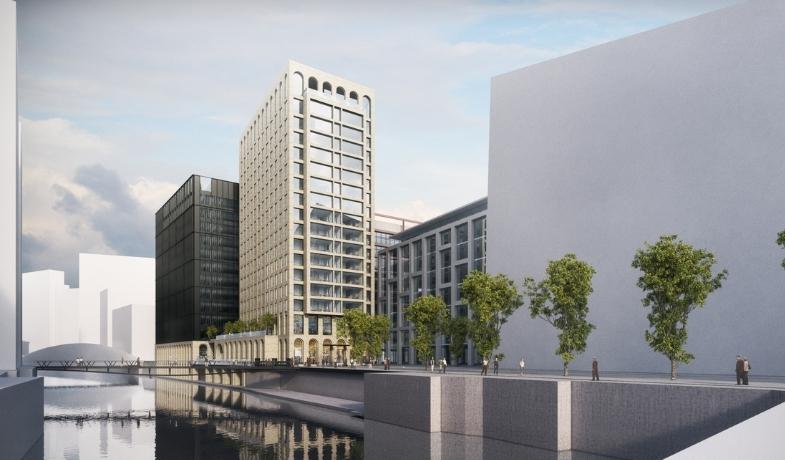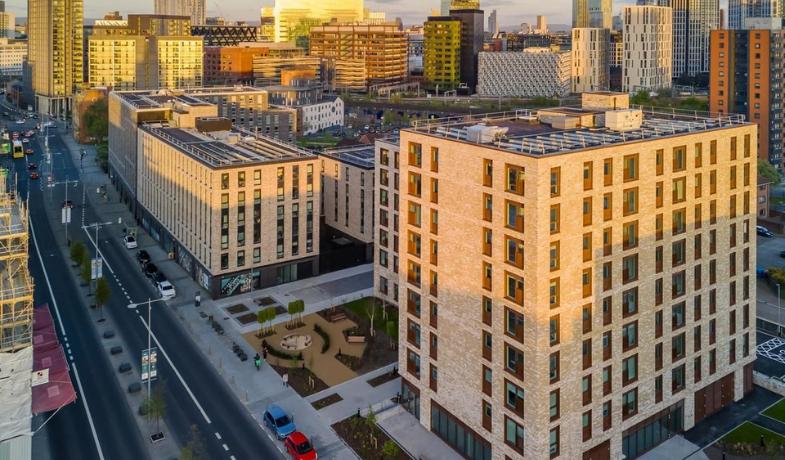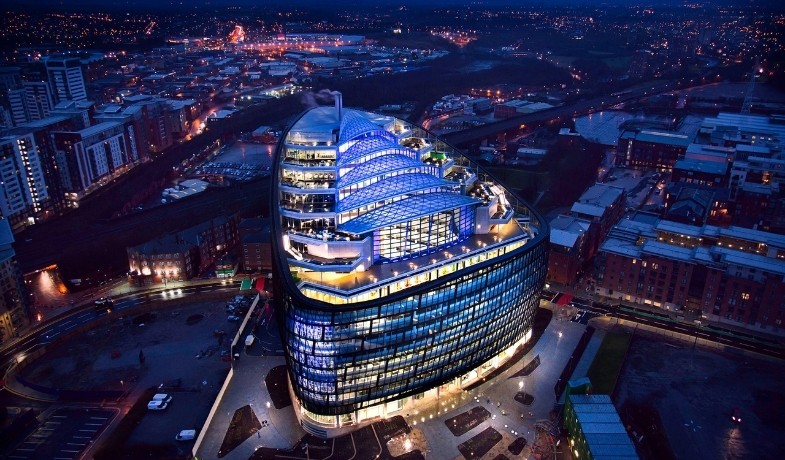SUSTAINABILITY & NET ZERO CARBON FOR BUILDINGS
Buildings are responsible for roughly 40 percent of annual global carbon dioxide emissions.
Awareness of the negative ways in which buildings and the construction sector can impact the climate, natural environment and people has increased significantly in recent years. There is a need for more sustainable developments and it is vital that the built environment plays its part in decarbonisation, in order to reduce greenhouse gas emissions and help address climate change.
As Building Services Engineering Consultants, energy reduction & sustainability has always featured at the heart of our design process and we know we have a big part to play in helping our clients & the built environment achieve Net Zero Carbon and other green objectives.

Sustainability Consultancy Services
An increasing number of clients are seeking direction regarding the best ways to develop a sustainability strategy and meet their legislative and organisational targets, as they face increasing pressure from investors and occupiers.
Hannan Associates is well placed to support property developers, investors and landlords to help understand these requirements, help deliver highly sustainable developments and provide solutions for imporving existing buildings to meet new targets.
We provide a wide range of sustainability focused advice to define ways of achieving sustainability targets such as: Net Zero Carbon; NABERS UK & Design for Performance Energy Modelling; BREEAM; and Passivhaus.
Strategy

Sustainability Strategy (Building and/or portfolio level)
Net Zero Carbon Pathways
Planning – Energy & Sustainability Reports
Decarbonisation

Embodied Carbon Life Cycle Assessments
Operational Energy Modelling
Passive Design Analysis
Low Zero Carbon – Renewables Feasibility Studies
Additional Services

Life Cycle Costing Assessments
Indoor Air Quality Plans
We help our clients develop sustainability related targets and strategy bespoke to their own individual requirements. These targets can be used on single developments but also as a basis for future projects.
We are at the forefront of change in relation to the way buildings are modelled to meet the demands of evolving Building Regulations and guidance from professional bodies such as UKGBC and LETI, who are driving carbon targets for construction towards the 2050 net zero government commitments.
Our involvement includes pilot schemes for modelling energy and carbon in use for new buildings, such as Design for Performance (DfP) and NABERS UK. This experience has enabled us to make a valuable contribution to development master planning and designing high energy efficient and sustainable buildings.
PROJECTS

Ralli Quays, Salford

Greenhaus, Salford

One Angel Square, Manchester

What is Net Zero Carbon?
Net Zero Carbon relates to the reduction of greenhouse gas emissions, the majority of which are Carbon Dioxide.
The UKGBC’s current definition of Net Zero Carbon divides the process into two parts:
Net zero carbon – Construction or Embodied Carbon:
“When the amount of carbon emissions associated with a building’s product and construction stages up to practical completion is zero or negative, through the use of offsets or the net export of on-site renewable energy.”
Net zero carbon – Operational Energy:
“When the amount of carbon emissions associated with the building’s operational energy on an annual basis is zero or negative. A net zero carbon building is highly energy efficient and powered from on-site and/or off-site renewable energy sources, with any remaining carbon balance offset.”
What are the Net Zero Carbon Targets?
The Paris Agreement, set in 2015, aims to limit the average global temperature rise to well below 2°C. In line with this, the World Green Building Council are guiding the construction and property industry towards achieving Net Zero Carbon for all buildings by 2050.
There are various options for demonstrating carbon reduction in the design and construction of buildings including following the UK Green Building Council’s Net Zero Framework.
The UKGBC’s Net Zero framework provides Operational and Embodied Carbon performance targets which cover office and residential type buildings and sets a gradual trajectory of carbon reduction figures from 2020 to 2050 for clients and project teams to follow.
Why do we need to achieve Net Zero Carbon?
Climate science research has shown that In order to halt climate change, carbon emissions, which cause a warming effect, need to fall by about 45% from 2010 levels by 2030. Globally the built environment is responsible for almost half of greenhouse gas emissions and therefore has a big part to play in helping to meet net zero carbon targets.
How does Net Zero Carbon align with other sustainability goals and assessment methods?
Net Zero Carbon is an integral part of a much wider systemic shift towards a more sustainable built environment, and it should be considered holistically alongside other elements of sustainability such as Biodiversity and Health & Wellbeing and other methods for assessing the green credentials of buildings.
If you would like to talk to us about any aspect of Sustainability, Net Zero Carbon or building decarbonisation please get in touch.

Charlotte Becker
Graduate Sustainability Engineer

